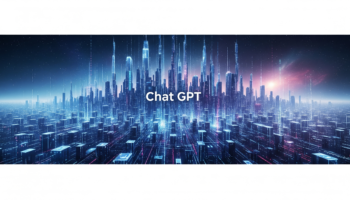A few days after ChatGPT was born into the world thanks to the midwifery of OpenAI and, to be honest, the womb of Nvidia GPU, I began experimenting with the generative AI platform, asking it to write on one of my favorite themes in my style. In a tweet, I joked that I was obsolete.
A year later, I’m not obsolete, and few journalists like me have lost their jobs as a direct result of ChatGPT or AI in general (though publishers have tried and failed, spectacularly in certain cases, to replace writers with it). I’m not denying that some people in the media have lost their jobs or been deprived of work as a result of the emergence of ChatGPT and its clones, but clear cause and effect on a large scale has yet to be established.

In the year since it first appeared on the scene and made people doubt their livelihoods, ChatGPT has seen incredible development as well as quite a bit of controversy (Sam Altman is still the CEO, right?). I took a vacation just two months after the launch, and I remember recall speaking with a retired cop, a man with little knowledge of or interest in technology or AI, who was concerned about how his young adult children would compete for work in a ChatGPT-automated world.
Rarely has a new technology moved so swiftly from media and tech sector curiosity to broad public knowledge and alarm.
The genuine ChatGPT
We regard ChatGPT as an entity in the same manner as we regard celebrities. We loved it at first, and couldn’t wait to see what information the large language model (LLM) would spit out based on our prompts next; however, we soon discovered that its confident front was hiding a sometimes muddled and confused mess of hallucinations and misinformation. When ChatGPT was correct, it was quite correct; when it was incorrect, it was mind-bogglingly incorrect.
But, a year ago, I should have realized that, while ChatGPT might imitate inventiveness and even attempt to imitate my writing style, it generally failed. It could write a one-off haiku or poetry, help create a game, and even contribute to the creation of movie scripts, but it quickly ran out of stream, creativity, and ideas. When it didn’t, it was simply repeating concepts from its original data sources (everyone’s material). Essentially, we were all reading our own words, simply rearranged to appear different.
Things are moving quickly
To be sure, today’s ChatGPT, powered by GPT 3.5 (free version) and GPT-4 Turbo, is a long cry from the uninspiring responses I received from the initial ChatGPT. When I first asked ChatGPT about ways to improve the iPhone, it gave me an answer that was based on the known world of technology and offered no unique leaps. ChatGPT basically only knew what we did.
The original ChatGPT was certainly not deserving of the existential catastrophes that the new version – and whatever OpenAI has in its sleeve – now threaten. However, I and many other creators are still standing, and it comes to me that there may be a reason for this. As AI advances, programmers, artists, writers, designers, filmmakers, and musicians must adapt develop new approaches to create as well. In some circumstances, they use AI to their advantage, while in others, they just take a different path.
ChatGPT started an AI revolution a year ago, but it wasn’t the end of the world for me or you. Not yet, at any rater.







1 Comment